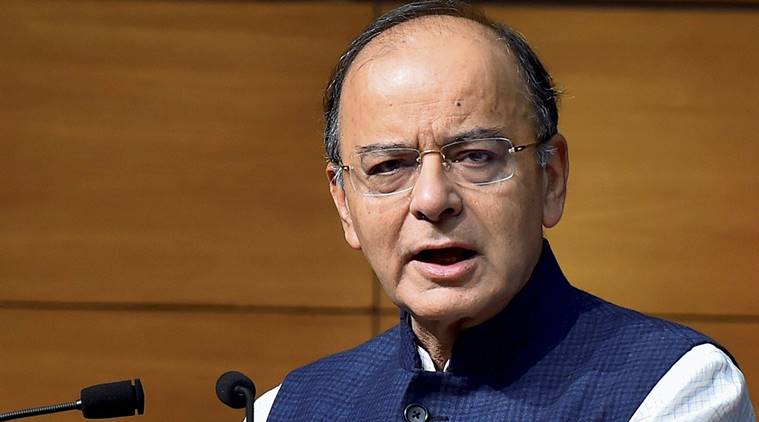NEW DELHI, Oct 27: In an oblique reference to developments in the CBI, Finance Minister Arun Jaitley Saturday wondered whether non-accountability of institutions could be a ground for investigative adventurism and masking corruption.
The country is higher than any institution or the government, he said while delivering the first Atal Bihari Vajpayee Memorial lecture here.
The Supreme Court had to intervene in the infighting between senior functionaries of the Central Bureau of Investigation (CBI). Opposition parties led by the Congress made the government’s decision to send CBI director on forced leave a political issue saying it was done to prevent him from investigating the Rafale jet fighter purchase deal.
“The nation that is India, is higher than any institution or government … Can non-accountability be a mask for corruption? Can it be a ground for investigative adventurism, or can it, as in case of other non-accountable institution, be a ground for inaction? What does the nation do? It is a major challenge,” Jaitley said.
Observing that he was not providing any answer to the vexed questions, the minister said, “One answer is clear to me. The country is taller than any institution. And therefore, when we deal with non-accountable institutions, which is a challenge of the day. We will have to keep these challenges in mind. And those who think right will perhaps reflect on this.”
He also regretted that the attempts were being made to weaken the authority of the elected and creating a power shift in favour of non-accountable institutions.
“Ultimately at the centre or the states, it is the elected who are accountable. The non-accountable are not accountable,” the minister stressed.
Referring to the issue of separation of powers, Jaitley said the concept is a part of the basic structure ought not to be violated by any Indian government or any party.
“In fact greater encroachment into the functions of other organs, both through entering the executive domain, at times laying down legislative guidelines under Article 142 by a process of misinterpretation as in the judges appointment case, usurping the power which belongs to Parliament, we can actually see the principle of separation of power at times being obliterated or diluted.
“It is a tendency which must be avoided and it require statesmanship of all institution to do so,” the minister added.
Talking about federalism, he said it an important challenge but India should always be a union of states and it must have strong states and a strong Centre.
“The moment India becomes a confederation of states, greater challenges to India will emerge. The responsibility of the Centre in keeping this country together and looking after the states is far higher,” he said.
“… I just want to put a word of caution. Federalism in India is essential. India is and should always be a union of states,” he added.
The minister said the balance of federalism lies in making India a union of states and no step which goes in the direction of making it a confederation of states must ever be taken.
“I occasionally hear voices and one of the reasons why this experiment does not take off, whenever regional parties have come together, for reasons other than federalism, we have still not reached that stage of maturity where there is any longevity of their governance. It is a failed idea or at least today it is a flawed idea,” he said.
Governance needs a strong central pole, he said, adding the country can have regional players around, but “you cannot have a confederation of regional players”.
Talking about the quality of politics and public discourse, Jaitley said democracy cannot be saved by those who are committed to dynasties and who are governed by the left-wing philosophy of overthrowing the government, and who believe in breaking India into pieces.
“Political parties based on caste, where inheritance is only based on family principles … How long can Indian democracy afford this? And this has a direct impact on the quality of politics.
“Because when you have a following, which either becomes a caste following or in case of families becomes a crowd around a family, for their own ambitions and interest the quality of politics suffers. And when it suffers the quality of public discourse suffers. How does India meet the challenge? But at the end of the day we have to keep the spirit of democracy alive,” he added. (PTI)


